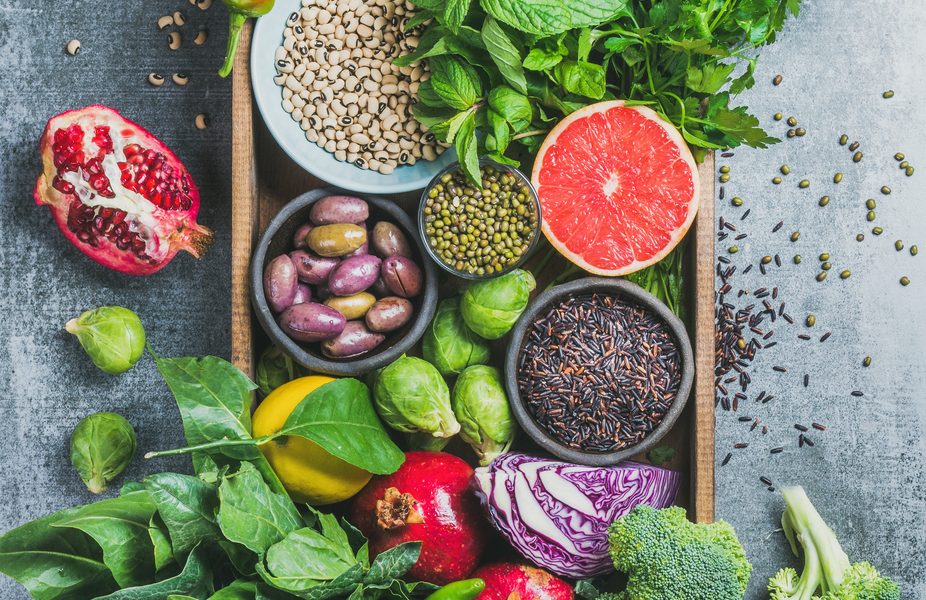Air pollution is said to be one of the biggest threats to public health in the UK behind only cancer, obesity and heart disease – which makes for a scary read! In fact, more than 40 towns and cities in the UK are at or have exceeded air pollution limits set by the World Health Organisation, according to its new report findings. But it’s not all doom and gloom. London City Hall has introduced the Ultra-Low Emissions Zone (ULEZ), in central London this month, as well as the government announcing its UK Clean Air Strategy this year, so the future certainly looks a little brighter. And if you want to take matters into your hands, look no further than your plate by adopting an anti-pollution diet. This diet is made up of foods that have a high ORAC (Oxygen Radical Absorbance Capacity) rating, meaning they contain strong levels of antioxidants, which help to breakdown molecules that enter our bodies and cause harm to healthy cells. ORAC ratings measure antioxidant levels and are important to note as the foods we eat can influence the structure and functions of our body and brain. Here are 10 foods which do just that!
-
- 1. Açaí berries Full of phytonutrients and with an ORAC value twice as high as blueberries, Açaí berries are the biggest buster of pollution’s effect on the body. They are packed with fibre, amino acids, vitamins C, A, B1, B2, B3 and E, naturally high in essential fatty acids and a source of calcium, magnesium, zinc and copper, however not all Açaí is created equally. Sambazon is the UK’s only organic and Fairtrade Açaí made of pure, sustainably sourced nutritious Açaí from the Amazon. Sambazon Açaí Blend-at-Home Superfruit packs are available to purchase from Ocado and Whole Foods Market or consumers can pick up an Açaí bowl-to-go from Whole Foods and Crussh juice bars.
-
- 2. Dark chocolate Known mainly for its rich flavor, recent research shows dark chocolate can also help towards improving heart health. Dark chocolate has a high ORAC reading and is rich in fibre, iron and magnesium. 90 per cent cocoa was found to have the strongest effect. Researchers in Polytechnic Institute of Coimbra, Portugal believe this is due to dark chocolate being richer in the powerful antioxidant flavanols.
-
- 3. Pecans We’ve all heard that nuts are great for us as they contain heart-healthy fats and can aid in reducing blood cholesterol, but it’s normally walnuts and almonds that spring to mind first. The humble pecan contains a high ORAC rating and healthy levels of zinc, which all help towards raising antioxidant levels in the blood stream and maintaining skin health – a triple win! Pecans make great addition to homemade cakes and can also be added to porridge bowls for extra fuel and crunch.
-
- 4. Elderberries Utilised since prehistoric times, Elderberries are high in antioxidants, contain anti-inflammatory properties and are often used to help cure coughs, colds, urinary tract infections and a whole host of allergy and digestive health ailments. These can assist in preventing the effects of pollution on the body from taking place.
-
- 5. Artichokes The humble artichoke is packed full of powerful nutrients and vitamins including B6, calcium, iron, folate and fibre. Used for medicinal purposes since the fourth century, artichokes play an important role in reducing and preventing the effects of pollution on the body and keeping immunity levels up. Often used in Mediterranean dishes, this versatile ingredient can be boiled, or is often used as a pizza topping!
-
- 6. Cranberries Used for centuries to ail stomach and urinary troubles, cranberries have been proven to assist with numerous bodily issues. With a whole host of antioxidants, proteins, vitamins and folates, these tasty berries are essential to helping in the fight against pollution. They can be used fresh or frozen and mixed into hundreds of different recipes to suit every taste. Whether it’s a smoothie, ice cream, added to cereal or used to make a sauce, there’s no reason not to make cranberries your new best friend.
-
- 7. Kidney beans These kidney-shaped beans are a dominant source of protein and widely used in Central American, Mexican and Indian dishes. Full of three times more antioxidants in comparison to other bean counterparts, these purple beans are also rich in minerals, vitamins and fibres and are often used as part of a balanced diet to promote colon health and moderate blood sugar levels, assisting in preventing the negative effects pollution has on the skin too.
-
- 8. Coriander Often referred to as cilantro or dhaniya, this leafy green herb contains several essential oils and healthy acids, which the body uses to combat numerous health ailments including ulcers, reducing blood pressure and cholesterol levels and helping to improve gut health.1 Working from the inside and out, coriander is a versatile ingredient across numerous cuisines and works to battle the effects of pollution both internally and externally on the skins surface. Add to guacamole, dhals, chilli and an abundance of dishes for a new taste sensation!
-
- 9. Blueberries Low in calories and high in nutrients, blueberries are versatile and can be added to dishes for a sweet taste without the calorie intake. Often labelled a superfood, these small berries contain elevated levels of fibre, vitamins A and K, manganese and water to reduce the effects of pollution to the body. Add to cakes, smoothies, cereals or savoury pancakes for an added naturally sweet twist.
- 10. Blackberries Another berry to make the list is Blackberries. A delicious addition to any diet, blackberries are high in fibre, vitamins, and manganese and full of antioxidants to cleanse from the inside. Just one cup of raw blackberries contains 29 micrograms of vitamin K and over 30 milligrams of vitamin C! Add to breakfast smoothies, yogurts and shakes for a tasty treat!




















